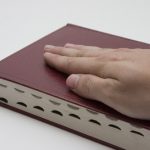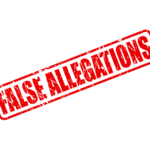NSW Police Officer Found Guilty of Perjury

A New South Wales police officer who lied in court to support a fake sexual assault claim made by his partner, has been found guilty of perjury.
In 2014, Sarah Jane Parkinson claimed that her former partner slammed her head into a wall and sexually assaulted her while she was hanging washing on a line.
False sexual assault allegations
The accused man was refused bail and spent time behind bars, before police admitted during the man’s trial that the “entire prosecution was a mistake.”
The false complainant, Sarah Jane Parkinson, eventually pleaded guilty to making a false complaint and was sentenced to imprisonment.
The police officer, Scott John White, faced perjury charges over two claims he made in court.
At the time he was in a relationship with Ms Parkinson, and the pair have since married.
The charges
The first charge of perjury related to Mr White’s testimony in court that he and Ms Parkinson did not discuss their statements.
The second charge related to his claim that the couple never used condoms.
A condom was found at the scene of the alleged incident, and Ms Parkinson claimed her former partner forced her to unwrap it and put it on him before he sexually assaulted her.
Mr White later admitted that he and Ms Parkinson did in fact use condoms.
A jury found he had committed perjury in making this second statement.
However the jury could not reach a verdict on the first charge, as there was some uncertainty as to which statements he had been referring to.
Mr White will be sentenced next year.
Perjury is a serious offence against justice
Perjury is considered a serious offence because when someone lies under oath, or does not provide the ‘full’ truth, or provides ‘misleading’ information, it can seriously affect the course of justice and it can compromise the authority and integrity of the justice system.
Perjury is considered a crime against justice, since lying under oath compromises the authority of courts, grand juries, governing bodies, and public officials. Other crimes against justice include criminal contempt of court, probation violation, and tampering with evidence.
The offence of perjury in New South Wales
Perjury is outlined in Section 327 of the NSW Crimes Act 1900.
Perjury can take a number of different forms, including perjury with intent to procure conviction or acquittal, making contradictory statements under oath and making a false entry on a public register.
Subornation of perjury is causing another person to commit perjury by persuasion, threat or coercion.
Making a false statement on oath not amounting to perjury. Is a charge that applies when there is not enough evidence for a charge of perjury, but the jury believes that there is enough to prove that an offence was committed .
New South Wales law states that a person who knowingly makes a false statement under oath during or in connection with judicial proceedings regarding a matter that is material to those proceedings is liable to a maximum penalty of ten years’ imprisonment.
A person can be charged with perjury whether or not proceedings have commenced or ever commence.
Judicial proceedings are matters proceeding to, or currently before a judicial tribunal during which evidence may be taken on oath.
Matters that are referred to as ‘material’ means they relate to issues that are significant and/ or important to the proceedings.
In New South Wales, perjury charges can apply whether the statement made is verbal or written. It also doesn’t matter what type of oath or affirmation a person swore, as long as you agreed to the terms that were used.
For a person to be found guilty of perjury, the prosecution must prove each of the following elements (or ingredients) beyond a reasonable doubt:
That a false statement was made:
- Under an oath or affirmation,
- In, or in connection with, judicial proceedings,
- Concerning a matter which was material to those proceedings, and
- The person who made the statement knew it was false or did not believe it was true at the time it was made.
The maximum penalty for perjury is 10 years.
It increases to 14 years where the prosecution successfully proves that the defendant committed the act with the intention to procure the conviction or acquittal of a person for a ‘serious indictable offence’ – which is an offence that carries a maximum penalty of at least five years in prison.







